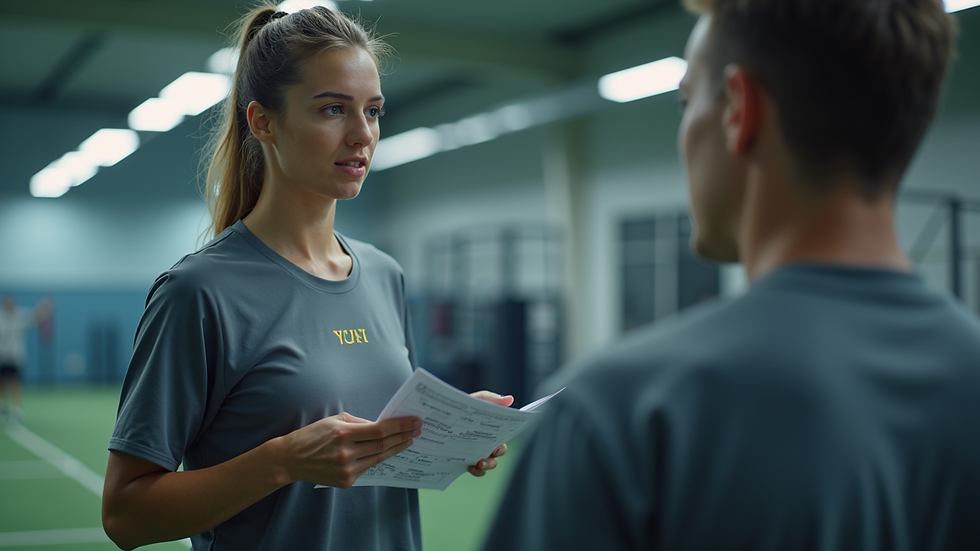How Sports Psychologists Improve Athletic Mindset
- Dr Paul McCarthy

- Sep 8, 2025
- 3 min read
Athletes face more than just physical challenges. The mental game is equally important in achieving peak performance. Developing a strong athletic mindset can be the difference between winning and losing, staying motivated or giving up. This is where mental strategies for athletes come into play. Understanding and applying these strategies can help athletes overcome pressure, maintain focus, and build resilience.

Understanding Mental Strategies for Athletes
Mental strategies for athletes are techniques designed to enhance focus, confidence, and emotional control. These strategies help athletes manage stress, stay motivated, and perform consistently under pressure. Some common mental strategies include:
Goal Setting: Setting clear, achievable goals helps athletes stay motivated and track progress.
Visualization: Imagining successful performance can improve confidence and reduce anxiety.
Self-Talk: Positive internal dialogue boosts confidence and counters negative thoughts.
Relaxation Techniques: Breathing exercises and meditation help control nerves and maintain calm.
Focus Training: Techniques to improve concentration and block out distractions.
For example, a sprinter might use visualization to mentally rehearse the perfect start and finish, while a footballer might practice self-talk to stay confident after a missed shot. Coaches and parents can support athletes by encouraging these practices and creating a positive environment.
The Role of Sports Psychologists in Enhancing Athletic Mindset
One of the most effective ways to develop these mental strategies is by working with sports psychologists. These professionals specialize in the psychological aspects of sport and help athletes improve their mental toughness. They assess an athlete’s mental strengths and weaknesses and tailor strategies to individual needs.
Sports psychologists use various tools such as cognitive-behavioural techniques, mindfulness training, and biofeedback to help athletes:
Manage performance anxiety
Build resilience after setbacks
Improve concentration during competition
Develop routines that enhance consistency
For instance, a sports psychologist might work with a tennis player to develop a pre-serve routine that calms nerves and sharpens focus. This personalised approach ensures athletes are mentally prepared for the demands of their sport.

Who is a Famous Sports Psychologist?
One of the most well-known figures in the field of sports psychology is Dr. Bob Rotella. He has worked with numerous professional athletes, including golfers like Tiger Woods and Phil Mickelson. Dr. Rotella’s approach focuses on building confidence and maintaining a positive mindset, which he believes is crucial for success in sports.
His books and seminars have influenced many athletes and coaches worldwide. Rotella emphasises the importance of mental preparation as much as physical training. His work demonstrates how psychological skills can be developed and applied to improve performance consistently.
Practical Tips for Athletes, Coaches, and Parents
Implementing mental strategies requires practice and commitment. Here are some actionable recommendations:
Create a Routine: Establish a consistent pre-competition routine to reduce anxiety and increase focus.
Set SMART Goals: Goals should be Specific, Measurable, Achievable, Relevant, and Time-bound.
Practice Mindfulness: Spend a few minutes daily on mindfulness or breathing exercises to improve emotional control.
Encourage Positive Self-Talk: Replace negative thoughts with affirmations like "I am prepared" or "I can handle this."
Use Visualization: Regularly imagine successful performances in vivid detail.
Reflect on Performance: After competitions, review what went well and what can be improved mentally.
Coaches can integrate mental skills training into regular practice sessions. Parents should support athletes by reinforcing positive attitudes and helping them manage pressure without adding stress.

Building a Resilient Athletic Mindset for Long-Term Success
Developing a strong athletic mindset is a continuous process. It involves learning from failures, staying motivated through challenges, and maintaining confidence. Athletes who invest in their mental game often experience better performance, greater enjoyment, and longer careers.
Remember, mental toughness is not about being emotionless but about managing emotions effectively. By applying mental strategies and seeking professional guidance when needed, athletes can unlock their full potential.
Whether you are an athlete aiming to improve, a coach looking to support your team, or a parent wanting to help your child succeed, understanding and prioritising mental strategies is essential. The mind is a powerful tool in sport, and nurturing it can lead to remarkable achievements.








